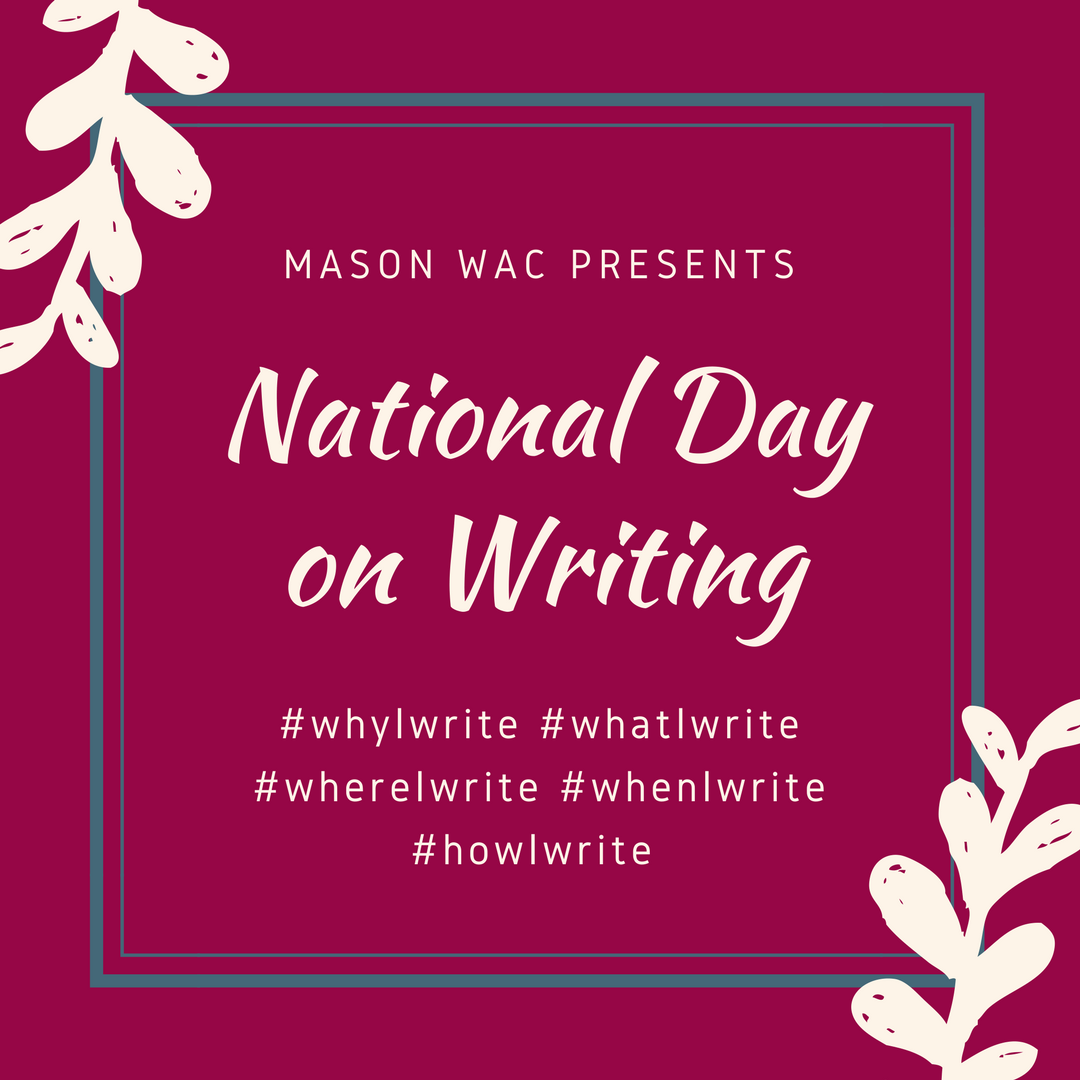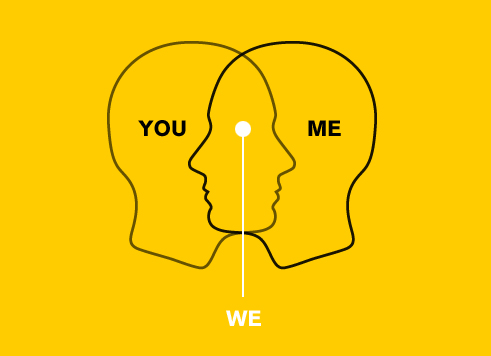Join Mason’s Writing Across the Curriculum Program on Friday, October 20th to celebrate the National Day on Writing. Tell your writing story using #whyIwrite #whatIwrite #whereIwrite #whenIwrite #howIwrite to join in the nationwide celebration of writing in our everyday lives.
Category: Graduate Students
Celebrate the National Day on Writing!
- Post author By clarelmoore
- Post date October 16, 2017

Friday, October 20th is the National Day on Writing!
The National Day on Writing celebrates the role of writing in our everyday lives. Whether it’s academic papers, email, texts, tweets, or graphic novels, we all write.
Announcing Writers of Mason!
- Post author By clarelmoore
- Post date February 16, 2017
At heart, all university campuses are communities of writers.
In Mason’s Writing Across the Curriculum Program, we work with a diverse array of writers. Mason’s students write in multiple contexts, with different styles, and for a variety of purposes. Our faculty teach writing in classrooms, seminars, and as part of their local and global field projects. Students and faculty alike contribute to the literature of their scholarly, research, creative, and professional communities.
 Emily Chambers is an English M.A. student in the Teaching Writing and Literature program and a Graduate Research Assistant for Mason WAC. She taught sixth grade English for five years in Culpeper, VA before beginning her studies at GMU. Emily’s main interests are in teacher development and curriculum resources. She can be reached at echambe5@masonlive.gmu.edu.
Emily Chambers is an English M.A. student in the Teaching Writing and Literature program and a Graduate Research Assistant for Mason WAC. She taught sixth grade English for five years in Culpeper, VA before beginning her studies at GMU. Emily’s main interests are in teacher development and curriculum resources. She can be reached at echambe5@masonlive.gmu.edu.
Educators often note that much of the writing students do in school settings (from k-12 to their first few years of college) is written for the “teacher as audience.” Many have suggested that “authentic writing” opportunities are more helpful to students, teaching them to consider audience and motivating them to write. Defined in simple terms, “authentic writing” is a phrase that describes writing for “real life” audiences and purposes. Examples might include asking students to write web text for a non-profit, proposals to granting agencies, letters to the editor, or pieces that will be submitted for publication.
In my five years of teaching middle school classes, the most successful and rewarding authentic writing experience was when I asked my students to submit to the America Library of Poetry Contest. My sixth-grade students used the writing process to compose poems, and after peer- and teacher-conferences, they submitted these poems to be read by national judges. We spent time through this lesson reading poems and talking about the strengths of good poems in our class sessions. This summer, I happened to read a short autobiography by a former student, written for a fundraiser. As one of her interests, Lindsay listed “writing poetry,” and mentioned that she was a winner in a national poetry contest. She had won! I was overjoyed to see that a classroom writing assignment had become a proud moment in my student’s life, and that she had taken on a role as a writer.
“I Changed My Mind”: Articulating Empathic Design
- Post author By caitlincholmes
- Post date February 25, 2016
By: Rachael Burke
Rachael Burke is a second-year Writing and Rhetoric PhD student at George Mason University. Her research centers on empathic articulation and social-emotional design. She has taught composition, ESL, and interdisciplinary studies, and she is currently teaching at GMU and Northern Virginia Community College. You can reach her at rburke13@gmu.edu.
This post is the third in a series on empathy and writing scholarship. For the full series, please see her first post and second post.
When I think about what it means to write collaboratively and productively across the curriculum, I am always attempting to determine which frameworks best help us all define empathy ontologically and pragmatically. Toward this end, in my previous posts, I have attempted to simultaneously advocate for empathy’s inclusion across the curriculum even while I have tried to better define it. Admittedly, this is a complex task, and not just for me. As Daniel Batson (1991) says, “opportunities for disagreement abound” within the framework of empathy’s theoretical uncertainties (p. 11), and even with a “liquid” understanding of empathy (Burke, Permanence and Change, 1965 qtd. in Miller, 1984, p. 158), a firm sense of definition or application can be hard to come by.

